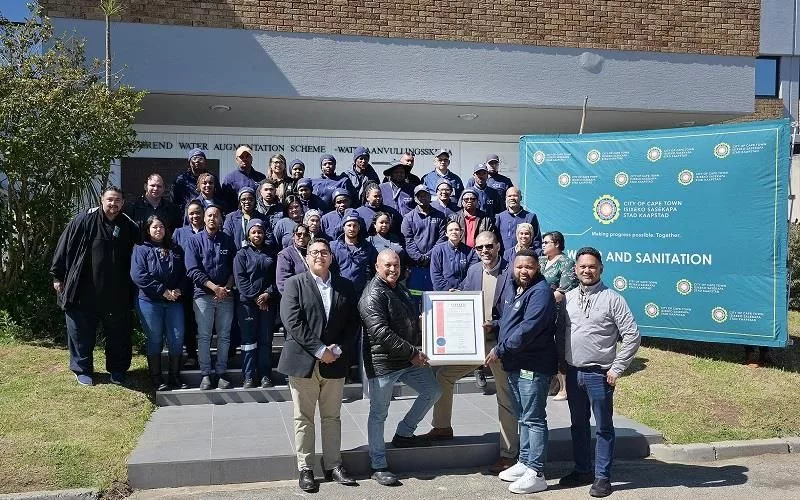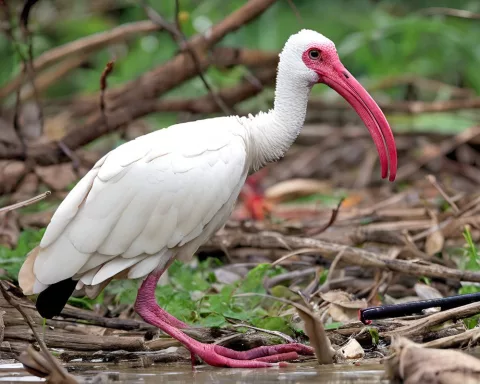Cape Town’s three water treatment plants, Brooklands, Blackheath, and Voëlvlei, have received the ISO 22000 food safety management system certification, marking a significant achievement in their pursuit of quality. This rigorous certification signifies the city’s commitment to exceptional standards and supplying its inhabitants with top-quality potable water. The certification process involved a thorough review of current practices, internal evaluations, comprehensive training, and detailed examination by external auditors. This accomplishment highlights the dedication of the Water and Sanitation team and provides a sense of security for residents’ access to clean drinking water, a fundamental human right.
What is the ISO 22000 food safety management system certification and why is it important for Cape Town’s Water Treatment Plants?
ISO 22000 certifies organizations in the food industry that uphold rigorous quality and safety benchmarks, manage manufacturing processes aptly, and abide by legislative mandates. It is important for Cape Town’s Water Treatment Plants because it signifies a strong dedication to exceptional standards, highlighting the city’s commitment to supplying its inhabitants with top-quality potable water.
A Significant Milestone: Cape Town’s Water Quality Triumph
On World Quality Day, November 9, 2023, the city of Cape Town marked a significant milestone. Its three Water Treatment Plants (WTPs)—Brooklands, Blackheath, and Voëlvlei—received official recognition for their compliance with the demanding standards set out in the ISO 22000 food safety management system certification. This was under the auspices of the South African Bureau of Standards (SABS). This accomplishment highlights the city’s dedication to supplying its inhabitants with top-quality potable water.
The ISO 22000 sets apart organisations in the food industry that uphold rigorous quality and safety benchmarks, manage manufacturing processes aptly, and abide by legislative mandates. While this certification is optional globally, obtaining it signifies a strong dedication to exceptional standards. In Cape Town, water—a vital necessity for well-being, akin to food—is subjected to a similar degree of inspection to guarantee its safety and quality for consumption.
Zahid Badroodien, Councillor and Mayoral Committee Member for Water and Sanitation, emphasized the significance of this accomplishment. “Water is as vital to our well-being as the food we consume,” he remarked. “We need to monitor its production quality, which drove us to meet one of the highest global food-safety standards.”
A Rigorous Journey: From Review to Certification
Getting to this point was a meticulous journey. To comply with ISO 22000’s stringent demands, Cape Town’s Water and Sanitation Directorate underwent a thorough review of its current practices. This review process included internal evaluations, comprehensive training, and a detailed examination of the City’s control systems, risk management, and hazard analysis procedures by external auditors. After this intensive scrutiny, the auditors endorsed the ISO 22000 certification for all three plants. Consequently, Brooklands, Blackheath, and Voëlvlei WTPs received the esteemed certificates, marking a significant step in their pursuit of quality.
The SABS, acknowledging the city’s accomplishment, appealed to other organizations to do the same. Acting CEO of the SABS, Dr Sadhvir Bissoon, said, “The City of Cape Town is a crucial stakeholder of SABS.” He further stated that the certification guarantees quality and provides a sense of security, especially given South Africa’s water quality challenges. “ISO 22000 certification ensures that the water quality from the treatment plants complies with international standards, affirming residents’ access to clean drinking water, a fundamental human right.”
The three certified WTPs, each with its distinct profile, are essential parts of Cape Town’s water infrastructure. Brooklands WTP, nestled within the Cape Peninsula Mountains and part of the SANParks boundary, was established in 1974 and has a design capacity of 5,20 Ml/d. The Blackheath WTP, launched in 1983 and located in the agricultural area of Saxenberg, supplies a significant 430 Ml/d. Voëlvlei WTP, nestled within the Cape Nature reserve at Voëlvlei dam, has a design capacity of 270 Ml/d and has been in operation since 1972.
Concluding Thoughts: A Quality Commitment
In closing, this recent accomplishment underscores the dedication of the Water and Sanitation team, who Councillor Badroodien commended for their relentless efforts. “It is a proud moment for the Water and Sanitation team that worked tirelessly towards the successful ISO 22000 certification,” he declared. “This gives us all extra reassurance that Cape Town’s potable water remains exceptional in quality, proven even when measured against multiple international standards.”








